
Periodontal diseases are diseases that affect one or more of periodontal tissues. These diseases may affect alveolar bone, periodontal ligament, cementum or gingiva. Periodontal diseases are generally caused by bacterial plaque that gradually builds up on person’s teeth. These plagues are normally removed in the process of tooth brushing, but if the oral hygiene is not kept at the optimum level, this colorless bio film may harden and cause infection. Most of the periodontal diseases are classified in two main categories: as gingivitis and periodontitis. Untreated gingivitis always leads to periodontitis. However, periodontitis may sometimes occur solely, without being preceded by gingivitis.
Periodontal diseases
Milder form of periodontal disease is known as gingivitis. Gingivitis is an inflammation of the gum tissue. It occurs as an inflammatory response to bacterial biofilms that accumulated on tooth surfaces. Bacteria are able to produce chemicals, such as degrative enzymes, as well as various toxins. Bacterial plaque, therefore, initiate the body’s host response, which leads to destruction of the gingival tissues. The classic symptoms include swollen gums, bright red or purple gums, tenderness of gums, and bleeding from the gums.Periodontitis is the most severe set of inflammatory diseases affecting the periodontium. It is distinguished by progressive bone loss and if left untreated, leads to the loosening and subsequent loss of teeth. Symptoms are similar as in gingivitis but also include bad breath, metallic taste in the mouth, gingival recession, pockets between teeth and gums, and loss of teeth.
Prevention of periodontal diseases
The key to prevention of periodontal diseases is an adequate oral hygiene and otherwise healthy life habits. Keeping the mouth and teeth clean may prevent dental problems and even a bad breath. In the process of teeth cleaning, one removes dental plaque, made of accumulated bacteria, and prevents cavities, gingivitis and gum disease. One should clean teeth at least two times a day, using a simple toothbrush and appropriate toothpaste. However, dentists recommend that teeth be cleaned professionally at least twice per year, to remove excess tartar and prevent changes on the bone. Flossing the teeth is also an important element of oral hygiene. Flossing helps to remove dental plaque and decaying food that are left stuck between the teeth. One should always floss under visible areas by curving the floss around each tooth instead of simply moving up and down on gums.Eating certain foods may also improve oral hygiene. Doctors recommend foods rich in vitamin B and vitamin C, as well as foods rich in magnesium and zinc.


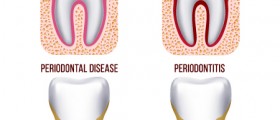
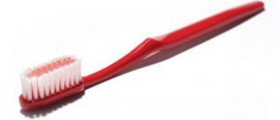
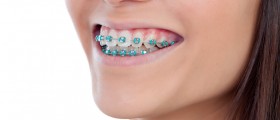

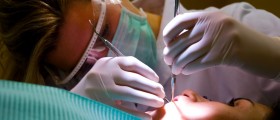
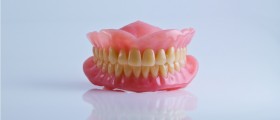

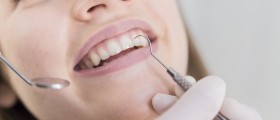

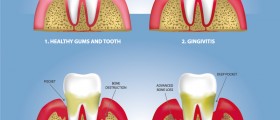

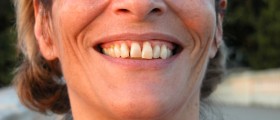
_f_280x120.jpg)

,-Don't-Ignore-Receding-Gums_f_280x120.jpg)
Your thoughts on this
Loading...